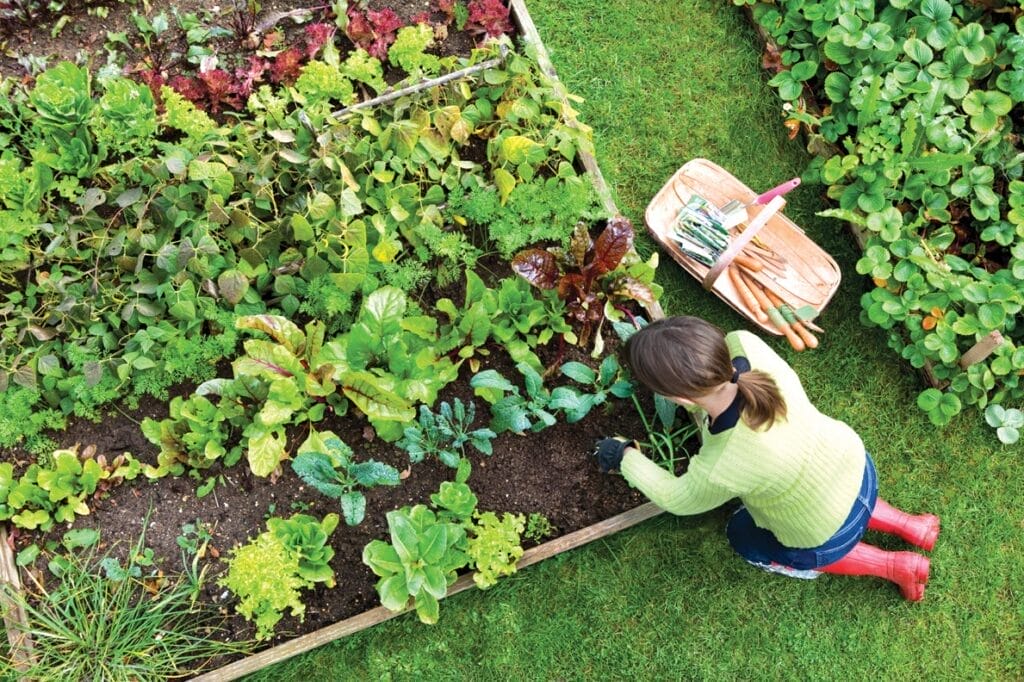
Drizzly days that accompany the Pacific Northwest seasonality can take a toll on us. It is important to find ways to stay active and keep your spirits high. Gardening creates a sense of purpose and is a very rewarding activity because it allows people to experience success, build confidence, and connect with their physical environment. It’s very satisfying for seniors with dementia to nurture plants and it’s an activity that people feel naturally connected to.
Transitioning your gardens and raised beds from summer to fall is a great way to keep enjoying the outdoors and keep up your gardening all year long.
Many vegetables thrive in colder months and are also a great way to spruce up your cooking! A few greens that you can enjoy in the fall are spinach, lettuce, and kale. Don’t forget your favorite root crops such as carrots, beets, onions and radishes.
The beginning of autumn is also an optimal time to begin harvesting herbs like rosemary, basil and sage, which actually develop their strongest flavor before blooming. You can snip them early in the morning and store them somewhere dry. What could be better on a cold afternoon than a warm bowl of soup garnished with fresh herbs from your garden?
If your passion for gardening is fueled by flowers, there are some beautiful annuals that can make your garden come alive with fall color as well. Some good fall annuals include pansies, verbena, and mums, which are great for borders, mass plantings, and containers.
The two most important steps you can take to help make sure your garden and planters are ready for the colder months ahead are:
- Add some mulch
Mulching late in the season can block weeds, keep in moisture, and insulate the soil. Mulch also prolongs the growing season, which will allow your garden to prosper. Another tip to remember is that leaves are a great substitute for mulch and can offer the same benefits. They add nutrients and soil as they breakdown.
- Clean up and prune
It is important to trim and check spent plants for pests and diseases. If you do not see any sign of mildew or fungus on existing plants, you can even bury them and let them continue to act as mulch. by Angela Byrge
